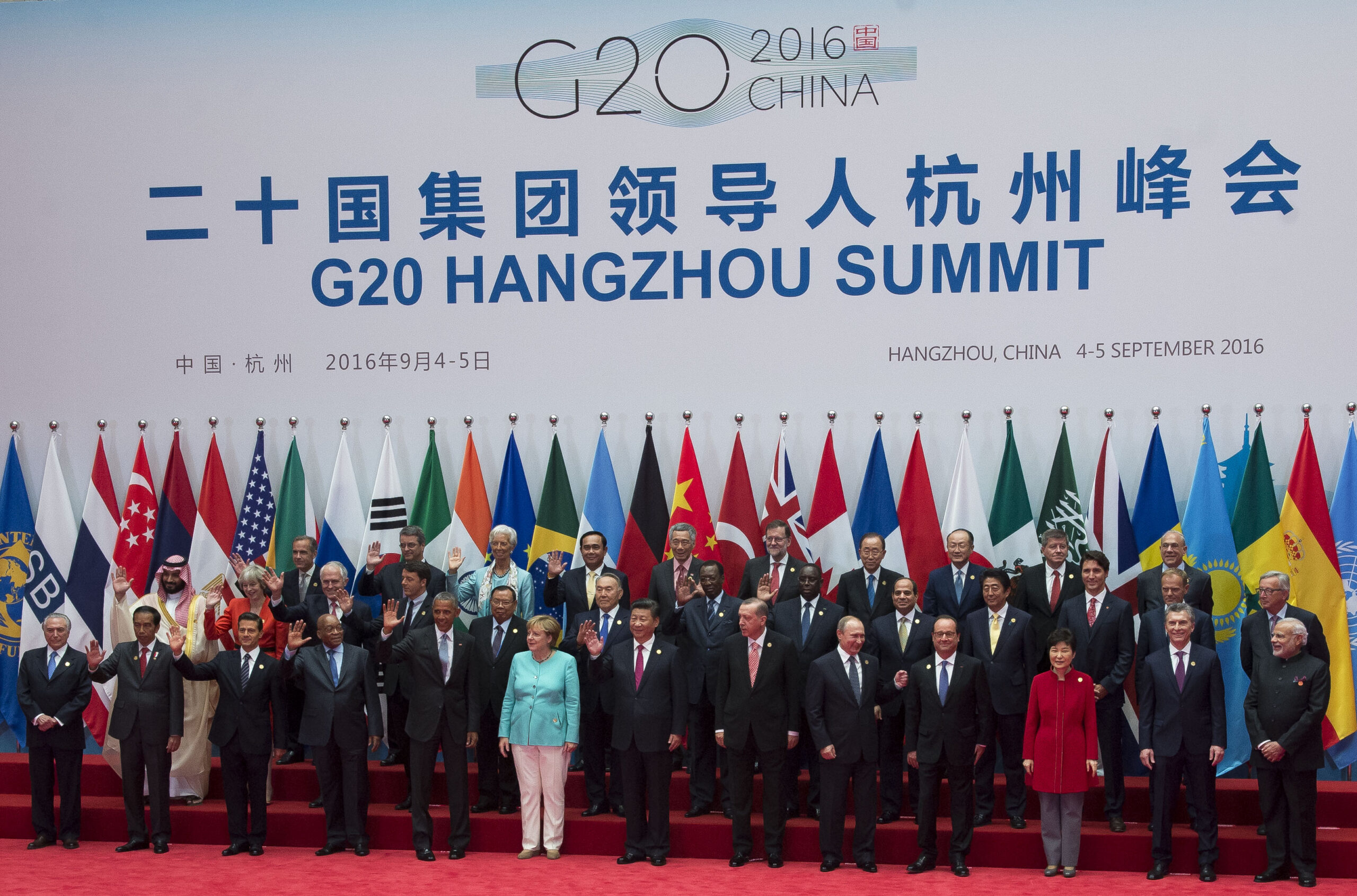
Africa demands more voice in G20

African representatives attending the ongoing T20 Africa conference in Johannesburg on Wednesday called on the G20 to allow them to present their own problems rather than having them put forward by others.
The meeting was organized by South African Institute of International Affairs, German Development Institute and Institute for the World Economy. Germany is the current chairman of G20 having taken over from China in December 2016.
The first T20 African conference was attended by diplomatic corps, think tanks from Africa and G20 countries, policy makers from South Africa, Germany, international and African regional organizations.
The conference aims to find a way how the future cooperation between Africa and G20 should look like. The former director of the UN office of the Special Adviser in Africa, Patrick Hayford said there should be a synergy of partnerships between multilateral organizations like BRICS and G7/8 and Africa, among others.
“Africa must take charge of its own destiny about itself. Africa must believe in itself and push forward the agenda set by itself and implement it. The continent should also get over the idea of Sub-Saharan Africa. G20 should engage Africa as a whole continent,” Hayford said.
He said that Africa is still divided according to who was the former colonial masters, French speaking and the English and this will disrupt their engagement with the G20. He also lamented that 70 to 80 percent of the African Union (AU) funding is from abroad and Africa must be prepared to fund their projects.
The Head of Governance in the United Nations Economic Commission for Africa (UNECA), Francis Ikome said, the G20 should help Africa’s industrialization and transformation. The G20 should help Africa promote regional integration which is also a key to unlock economic growth.
Ikome said that there is a decline in external funding and the G20 needs to assist in the domestic mobilization of resources. The G20 should help the continent harness the youth properly and make sure they participate in the political and economic development of their countries.
He also said the Africa G20 engagement could be disrupted by the new leadership in the United States who are also part of the group. The policy pronouncements by the U.S. leadership of protectionism and Brexit present challenges to the cooperation between G20 and Africa.
Ikome said, “China articulated the African position during her tenure as the G20 chair we would like to see more of that. We are not an observer but an active participant in the G20.”
Thomas Silberhorn, Parliamentary State Secretary, German Ministry of Economic Cooperation and Development said his country is prepared to engage Africa about its position in the G20.
He said, “We have no hidden agenda but mutual benefit. We want to establish partnerships based on shared values, fair trade and rules.”
Professor Alan Firsch , Director Graduate school of Development Policy and Practice in the University of Cape Town, said the G20 and Africa should cooperate to stop the illicit financial outflow. Africa is losing over 50 billion U.S. dollars through illicit financial outflows.
Hirsch said, “There are financial illicit outflows by multinational Corporations by mispricing of goods and services and insurance. Some understate production to shift money to regimes where they will not be taxed much. We want G20 to help us to repatriate such illicit money from EU to Africa.”
He said the G20 Summit in China in September 2016 came up strong against money laundering, financial outflows, profit shifting and he expected China and Germany and other G20 members to ensure that the resolution is implemented.
Dr. John Anyanwu, leading research economist at African Development Bank said events taking place in Europe should not disrupt the G20 Africa engagement. He said elections in Germany, France and other EU countries who are G20 members may divert intention and engagement to focus on their elections.
Stanley Subramoney, Chair of NEPAD Business Foundation said G20 should help Africa in their 4th industrial revolution. He said the engagement should also focus on how to help Africa’s innovation technical improvement and infrastructural development.
He said, “Africa is rich while Africans are poor because we export primary (unprocessed) goods and import the processed one. We export wealth and import poverty.”
Dr. Zhu Ming from the Institute for Global Governance Studies Center for West-Asian and African Studies at Shanghai Institutes for International Studies told Xinhua that some EU members in the G20 still focus on their colonial countries.
He said AU should represent Africa in the G20, and emerging markets like China, Brazil and India share similar history, challenges and aspirations and have been doing a good job in advancing the African problems in the global stage and multilateral organizations.
The three-day conference will end on Friday, and is expected to come up with a communique about how G20 should engage Africa, on what issues and who should represent the continent in the G20.






